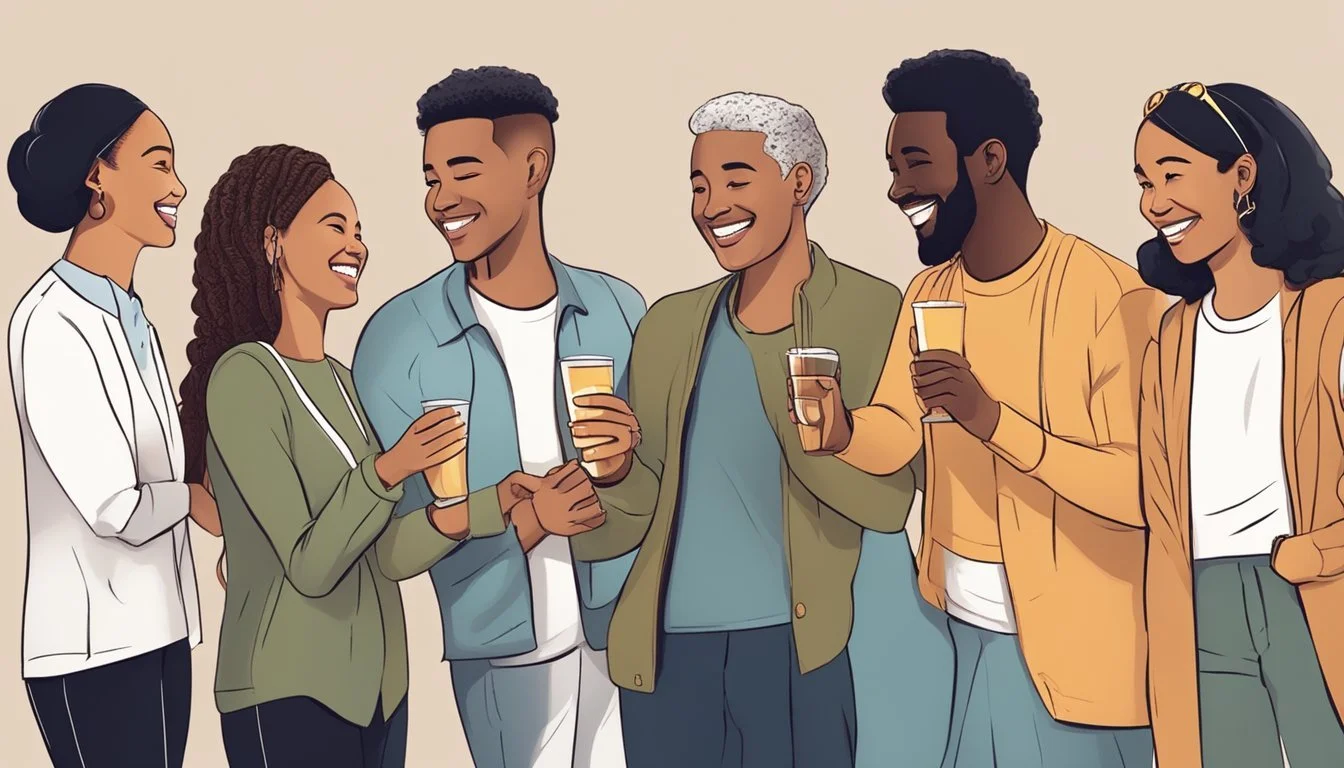Unlocking Happiness: Exploring Arthur Brooks' Personality Types
Arthur Brooks, a renowned social scientist and happiness expert, has developed a unique framework for understanding personality types in relation to emotional well-being. His approach categorizes individuals into four distinct profiles: Mad Scientist, Cheerleader, Poet, and Judge. These classifications are based on how people experience and express positive and negative emotions.
Brooks' personality types offer valuable insights into managing emotions, enhancing happiness, and building a fulfilling life. By identifying one's emotional tendencies, individuals can develop strategies to leverage their strengths and address areas for growth. This self-awareness can lead to improved relationships, career satisfaction, and overall well-being.
Understanding these personality types can be a powerful tool for personal development. Brooks encourages people to take his PANAS (Positive and Negative Affect Schedule) quiz to determine their emotional profile. This knowledge serves as a foundation for implementing targeted techniques to increase positive emotions and manage negative ones effectively, ultimately contributing to greater happiness and success in various aspects of life.
The Foundation of Arthur Brooks' Philosophy
Arthur Brooks' philosophy centers on understanding happiness, success, and well-being through scientific research and practical wisdom. His approach combines insights from positive psychology with a focus on personal relationships and meaningful work.
Conceptual Overview
Brooks' framework revolves around four personality types: Mad Scientist, Cheerleader, Poet, and Judge. Each type represents a different combination of positive and negative affect. This model helps individuals identify their natural tendencies and leverage their strengths.
Brooks emphasizes the importance of self-awareness in achieving fulfillment. He encourages people to recognize their personality type and use this knowledge to make informed decisions about their careers, relationships, and personal growth.
The core of Brooks' philosophy lies in the pursuit of lasting happiness rather than fleeting pleasure. He argues that true contentment comes from a sense of purpose, strong connections with others, and a balance between work and personal life.
Influence of Positive Psychology
Brooks draws heavily from the field of positive psychology, which focuses on human flourishing rather than merely treating mental illness. This approach informs his emphasis on cultivating positive emotions and building resilience.
He integrates research on well-being, such as Martin Seligman's PERMA model, into his work. This model highlights five elements of well-being: Positive emotions, Engagement, Relationships, Meaning, and Accomplishment.
Brooks' philosophy also incorporates findings on the role of gratitude, mindfulness, and acts of kindness in enhancing happiness. He advocates for regular practices that foster these positive states and behaviors.
Defining True Success
Brooks challenges conventional notions of success based solely on wealth, status, or achievement. Instead, he proposes a more holistic definition that encompasses personal fulfillment, strong relationships, and contributions to society.
He argues that true success involves aligning one's work with their values and strengths. Brooks encourages individuals to seek careers that provide a sense of purpose and allow them to use their talents effectively.
The importance of family and friendships is a key component of Brooks' definition of success. He emphasizes the role of deep, meaningful connections in creating a satisfying life. Brooks also stresses the value of giving back to the community and making a positive impact on others' lives.
Four Personality Types Outlined by Arthur Brooks
Arthur Brooks identifies four distinct personality types based on emotional tendencies and behaviors. These types influence how individuals approach work, relationships, and personal success.
Characteristics and Traits
The Mad Scientist type exhibits high positive and negative affect. They experience intense emotions across the spectrum. Mad Scientists are passionate, creative, and prone to mood swings.
The Cheerleader type displays high positive affect and low negative affect. They maintain an optimistic outlook and spread enthusiasm. Cheerleaders excel at motivating others and finding silver linings in challenging situations.
The Judge type shows low positive affect and high negative affect. They tend to be critical thinkers with a keen eye for problems. Judges often focus on improvement and maintaining high standards.
The Poet type demonstrates low positive and negative affect. They have a calm demeanor and even-keeled emotional responses. Poets are often introspective and observant of their surroundings.
Interactions with Work and Success
Mad Scientists thrive in dynamic environments that reward innovation. Their emotional intensity can fuel breakthroughs but may lead to burnout if not managed.
Cheerleaders excel in team-oriented roles and sales positions. Their positivity boosts morale and client relationships. However, they may overlook potential issues in their enthusiasm.
Judges perform well in analytical and quality control roles. Their critical eye catches errors others miss. They may struggle with overly positive work cultures.
Poets often succeed in creative or strategic positions. Their emotional stability helps in high-pressure situations. They may need to actively express enthusiasm to engage with more outgoing colleagues.
Impact on Personal Relationships
Mad Scientists form passionate connections but may overwhelm others with their intensity. They benefit from partners who can handle emotional fluctuations.
Cheerleaders attract others with their warmth and optimism. They create positive social environments but may neglect addressing serious issues in relationships.
Judges offer honest feedback and push loved ones to improve. Their critical nature can strain relationships if not balanced with positive affirmation.
Poets provide a calming presence in relationships. Their even-keeled nature helps during conflicts. They may need to make extra effort to express emotions to more expressive partners.
Well-Being and Happiness Strategies
Arthur Brooks outlines key strategies for enhancing well-being and cultivating lasting happiness. These approaches focus on building resilience, fostering gratitude and compassion, and finding joy in daily life.
Resilience and Overcoming Unhappiness
Resilience plays a crucial role in managing negative emotions and bouncing back from setbacks. Brooks emphasizes the importance of reframing challenges as opportunities for growth. He suggests practicing cognitive restructuring to identify and challenge negative thought patterns.
Developing a growth mindset helps individuals view difficulties as temporary and surmountable. Brooks recommends engaging in activities that build emotional strength, such as regular exercise, meditation, and maintaining strong social connections.
To overcome unhappiness, he advises focusing on personal values and long-term goals rather than fleeting emotions. This perspective shift allows individuals to navigate tough times with greater ease and purpose.
Cultivating Gratitude and Compassion
Gratitude and compassion are powerful tools for increasing happiness and well-being. Brooks encourages keeping a daily gratitude journal to highlight positive aspects of life, no matter how small.
He suggests:
Writing thank-you notes to express appreciation
Practicing random acts of kindness
Volunteering for causes that align with personal values
Compassion, both for oneself and others, fosters deeper connections and a sense of fulfillment. Brooks recommends cultivating self-compassion through positive self-talk and self-care practices.
Developing empathy for others can be achieved through active listening and seeking to understand different perspectives. This approach enhances relationships and creates a more supportive social environment.
Achieving Enjoyment in Everyday Life
Finding pleasure in daily activities is essential for sustained happiness. Brooks advises being fully present in the moment and savoring positive experiences. This can be accomplished through mindfulness practices and deliberately slowing down to appreciate life's simple joys.
He recommends:
Engaging in flow activities that fully absorb attention
Pursuing hobbies and interests that bring genuine enjoyment
Spending quality time with loved ones
Creating a balance between work and leisure is crucial. Brooks suggests setting boundaries to protect personal time and prioritizing activities that bring joy and relaxation.
Incorporating small pleasures into daily routines, such as enjoying a favorite beverage or taking a short walk in nature, can significantly boost overall well-being and life satisfaction.
Social Aspects of Personality and Happiness
Personality types influence how individuals interact socially and experience happiness. These social connections play a crucial role in overall well-being and life satisfaction.
The Role of Friendships
Close friendships contribute significantly to happiness and emotional well-being. People with strong social networks tend to report higher levels of life satisfaction.
Quality matters more than quantity when it comes to friendships. A few deep, meaningful relationships can have a greater impact on happiness than numerous superficial connections.
Different personality types approach friendships in unique ways. Extroverts may thrive on frequent social interactions, while introverts might prefer smaller, more intimate gatherings.
Importance of Family Bonds
Family relationships often form the foundation of a person's social support system. Strong family bonds can provide a sense of belonging, security, and emotional stability.
Personality types can influence family dynamics. Some individuals may naturally take on nurturing roles, while others might be more inclined to provide practical support.
Family connections can be a source of both joy and stress. Learning to navigate family relationships in a way that aligns with one's personality type can lead to greater harmony and happiness.
Extroverts, Introverts, and Well-Being
Extroverts and introverts experience social interactions and derive happiness from them differently. Extroverts often gain energy from social engagements, while introverts may need solitude to recharge.
Both personality types can achieve high levels of well-being, but through different means. Extroverts might find satisfaction in large social gatherings, while introverts may prefer one-on-one conversations or small group activities.
Finding a balance between social interaction and alone time is crucial for both extroverts and introverts. This balance can lead to improved mental health and overall happiness.
Brooks' Career and Public Impact
Arthur C. Brooks has established himself as a prominent figure in academia, public policy, and media. His career spans diverse roles that have allowed him to reach wide audiences with his insights on leadership, happiness, and social issues.
Harvard Kennedy School and Academia
Brooks holds prestigious positions at Harvard University. He serves as the William Henry Bloomberg Professor of the Practice of Public Leadership at the Harvard Kennedy School and Professor of Management Practice at the Harvard Business School. In these roles, he teaches courses on leadership, happiness, and nonprofit management. Brooks' academic career builds on his previous tenure as president of the American Enterprise Institute, where he held the Beth and Ravenel Curry Chair in Free Enterprise for a decade.
The Public Speaker and Social Scientist
As a public speaker and social scientist, Brooks has made significant contributions to discussions on personal development and societal well-being. He has authored eleven books, including bestsellers like "From Strength to Strength" and "Build the Life You Want." These works blend academic research with practical advice, reflecting Brooks' commitment to bridging the gap between scholarly insights and everyday life improvement. His expertise in economics and social policy informs his approach to addressing complex societal issues.
Media Presence and Collaboration with Oprah Winfrey
Brooks maintains a strong media presence, regularly sharing his ideas through various platforms. He writes a weekly column titled "How to Build a Life" for The Atlantic, where he explores topics related to personal fulfillment and societal progress. His collaboration with Oprah Winfrey on the book "Build the Life You Want" has further expanded his reach, bringing his insights to a broader audience. This partnership demonstrates Brooks' ability to connect with diverse groups and translate complex concepts into accessible wisdom for the general public.
Publications and Conceptual Contributions
Arthur Brooks has authored several influential books exploring happiness, purpose, and personal growth. His works offer practical insights and strategies for readers seeking to enhance their lives and relationships.
From Strength to Strength
Brooks examines the challenges of aging and career transitions in this book. He proposes that individuals can leverage their accumulated wisdom and experience to find new forms of success and fulfillment later in life. The book highlights the importance of adapting one's strengths and pursuing meaningful goals as one grows older.
Brooks introduces the concept of "crystallized intelligence" - the ability to use knowledge and past experiences to solve problems and make decisions. He argues that this form of intelligence continues to develop with age, offering unique advantages in later career stages.
The Art and Science of Getting Happier
This work delves into the research-backed methods for increasing personal happiness. Brooks synthesizes findings from psychology, neuroscience, and philosophy to provide actionable strategies for readers.
Key topics include the role of relationships in happiness, the importance of gratitude practices, and the impact of purposeful work. Brooks emphasizes the need for balance between seeking positive experiences and finding meaning in life's challenges.
The book also explores how creativity and faith can contribute to overall well-being, offering practical exercises for readers to incorporate these elements into their daily lives.
Build the Life You Want
In this publication, Brooks outlines a framework for personal development and life satisfaction. He focuses on helping readers identify their core values and align their actions with these principles.
The book introduces Brooks' concept of personality types, including the Mad Scientist, Cheerleader, Poet, and Judge. He explains how understanding one's type can lead to better decision-making and improved relationships.
Brooks also addresses the "happiness paradox" - the idea that directly pursuing happiness often leads to less satisfaction. Instead, he advocates for focusing on purpose and meaningful connections as paths to genuine fulfillment.
Understanding Happiness in the Workplace
Happiness at work greatly influences employee well-being and overall success. It extends beyond financial rewards, focusing on purpose, relationships, and personal growth.
Employee Well-Being and Productivity
Happy employees tend to be more productive and engaged. Research shows that workers who find meaning in their tasks perform better and take fewer sick days. Positive workplace environments foster creativity and innovation.
Companies that prioritize employee well-being often see improved retention rates. This can include offering flexible schedules, professional development opportunities, and wellness programs. Encouraging open communication and recognizing achievements also boosts morale.
Managers play a crucial role in promoting happiness at work. By providing clear goals and feedback, they help employees feel valued and understood.
The Intersection of Personal and Professional Success
Work-life balance is essential for happiness in both personal and professional spheres. Employees who feel fulfilled in their careers often report higher life satisfaction overall.
Professional success can contribute to personal growth, building confidence and self-esteem. Conversely, personal happiness can lead to improved work performance and career advancement.
Developing strong workplace relationships enhances job satisfaction. Collaborative projects and team-building activities can foster these connections.
Continuous learning and skill development at work can translate to personal enrichment. Many find that overcoming challenges in their careers leads to greater resilience in other areas of life.
Digital Interaction and Content
Digital platforms offer unique opportunities to enhance well-being and user experience. Meta products and cookies play crucial roles in shaping online interactions and content delivery.
Leveraging Meta Products for Well-Being
Meta products, including Facebook, Instagram, and WhatsApp, can positively impact well-being when used mindfully. These platforms enable connections with friends and family, fostering social support networks. Users can join interest-based groups, expanding their knowledge and finding like-minded individuals. Meta's video features allow for face-to-face communication, bridging physical distances.
Maps integration helps users discover local events and businesses, encouraging community engagement. To maximize well-being, users should set boundaries on usage time and curate their feeds to prioritize meaningful content.
The Role of Cookies in User Experience
Cookies enhance user experience by personalizing content and streamlining interactions. Essential cookies ensure basic website functionality, while optional cookies enable additional features. A clear cookies policy informs users about data collection practices.
Cookies help improve content relevance by analyzing user preferences and browsing patterns. This customization leads to more efficient information discovery. Ad-related cookies enable targeted advertising, potentially exposing users to products and services aligned with their interests.
Security-focused cookies contribute to a safer online experience by detecting unusual account activity and preventing unauthorized access. Users can manage cookie settings to balance personalization and privacy preferences.






